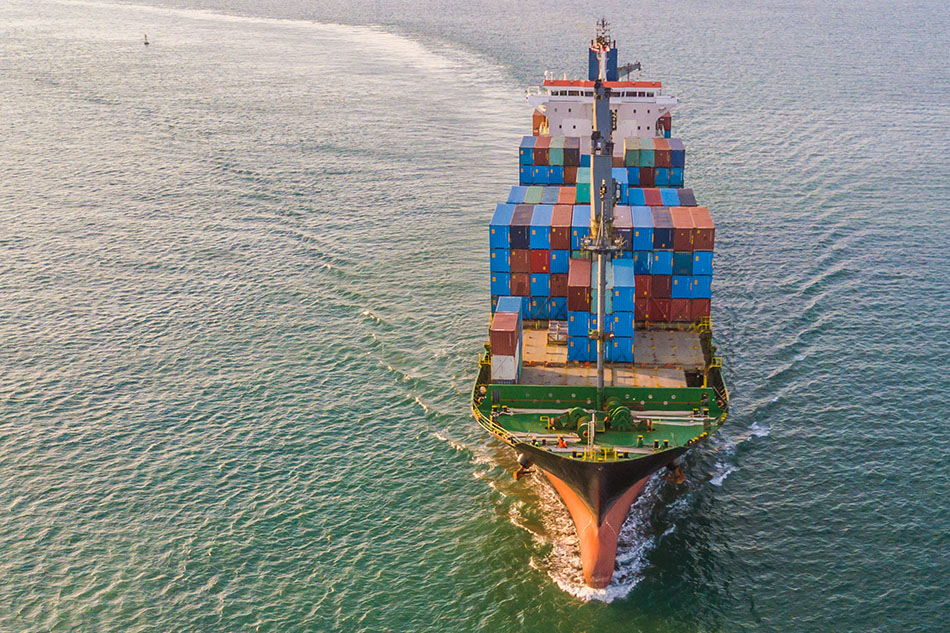
India was the second largest importer of U.S. scrap plastic during the first six months of 2019. | Avigator Fortuner/Shutterstock
Recovered plastic, including material from end-of-life electronics, has largely stopped flowing from the U.S. into India, which until recently has been among the top importers of scrap plastics.
The curtailment in material movement comes as the South Asian country prepares to implement an all-out ban on scrap plastic imports this month.
The Indian government in March announced its plan to ban scrap plastic imports, later indicating the ban would take effect Aug. 31. The ban is proposed to cover most plastics under the 3915 tariff code, including PET, PE, PP, PS, mixed plastics and more.
The announcement sent shockwaves through the recycling industry, because India is a major destination for U.S. material. The country was the second largest importer of U.S. scrap plastic during the first six months of 2019, bringing in 156 million pounds. June is the most recent month for which trade figures are available. E-plastics are generally classified under the international trade code for “other” plastics, and for the first six months of 2019, India was the fourth-largest importer of these materials from the U.S., bringing in 21.3 million pounds.
Since that highly publicized initial announcement and a subsequent clarification of the implementation date, there has been little news of the plastic ban. But in the intervening months there have been numerous indications the ban is still set to take effect later this month. Meanwhile, scrap plastic traders say the movement of material to India has stopped in preparation for the new restriction.
“There has been no change in the stance,” said Rakesh Surana of scrap plastics brokerage Gemini Corporation N.V. “Because of this, all the exports out of U.S.A. or Europe to India of plastic scrap have come to a standstill,” because it takes between 30 and 45 days for containers to reach India.
Under the upcoming regulations, there is “no chance” that baled e-plastics can be shipped into India, said Steve Wong of plastics recycling firm Fukutomi, citing information from industry contacts. For mixed e-plastic loads, the biggest concern is contamination with other e-scrap materials such as PCBs or metals, Wong reported. Clean, sorted regrind of e-plastic resins such as ABS or PS may be acceptable, but no level of contamination will be allowed.
Stakeholders adjust for end-of-August ban
In May, the Indian government continued to stress its upcoming plastics policy changes. In a press release describing the Indian delegation’s activities at the Basel Convention meeting in Geneva, the Indian Ministry of Environment, Forest and Climate Change praised the Basel countries for expanding regulations on global scrap plastic shipments. The Indian delegation was involved in negotiating the agreement to amend the Convention, the release stated.
“India has already imposed a complete prohibition of import of solid plastic waste into the country,” the release added, referencing the upcoming ban.
In June, shipping companies began to make adjustments as the Aug. 31 enforcement date came on the horizon. APL stopped accepting loads of scrap plastic moving from any country to India. Hapag-Lloyd issued an alert reiterating the Indian policy changes. The company announced that it would cut off shipments of “solid plastic waste” into India after July 10.
Sources told E-Scrap News the policy is still slated for an end-of-August implementation date. Scrap plastic shippers have received instruction that containers should reach the Indian ports by Aug. 20 at the latest, Surana of Gemini Corporation said, to enable the shipments to clear customs before Aug. 31.
As the ban approaches and shippers adjust accordingly, several key elements of the Indian policy remain unclear. Scrap plastic traders say it’s not certain whether post-industrial plastics or clean regrind will be banned, or whether the restriction is only covering baled, post-consumer material.
For the time being, however, clean regrind is still going to the country, traders say, and it’s mostly the baled scrap plastic that has been impacted, according to information shared by Wong, who is also executive president of the China Scrap Plastics Association (CSPA).
If that material is allowed to continue, it would be “more or less the same as the Basel Convention amendments,” Wong said. Uncontaminated loads of scrap plastic, sorted by resin rather than mixed together, are generally acceptable under the Basel guidelines.
India joins a growing regulatory movement
Over the past 18 months – the time since China’s scrap plastic import ban took effect – countries across Southeast Asia have enacted various restrictions on recycled plastic coming into their countries. And more recently, a growing number of these countries are shipping inbound plastic back to its source, which is frequently North America.
Although each Southeast Asian nation’s import restrictions have been slightly different, they are driven primarily by skyrocketing plastic import volumes that followed China’s ban. The influx of material has led to greater attention to contamination, particularly when the importing country does not have adequate infrastructure to dispose of that contamination.
These issues have built significant public pressure on governments to take action.
“There’s not a single day that we don’t see plastic scrap in the media,” Wong said.
A version of this story appeared in Resource Recycling on August 13.
More stories about e-plastics
- EU recyclers make case for solvent-based methods
- LG collection volume increased notably in 2024
- Malaysia to fully halt US e-plastic imports



